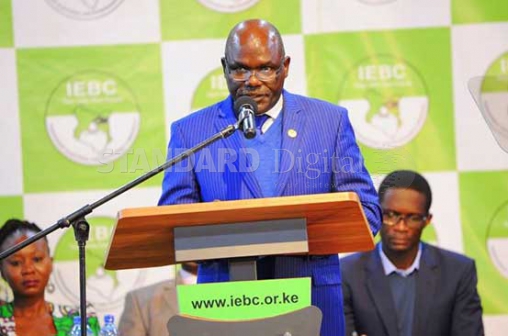×
The Standard e-Paper
Fearless, Trusted News

The electoral commission is mulling over drastic changes in the vote transmission system following the Supreme Court decision that annulled August 8 presidential results.
An Independent Electoral and Boundaries Commission (IEBC) internal appraisal of the Supreme Court decision has confirmed that the transmission infrastructure will have to be overhauled to accommodate a new layer of transmission added by the court.